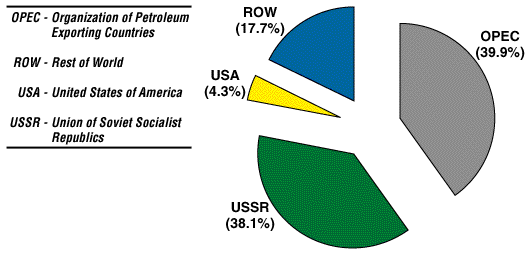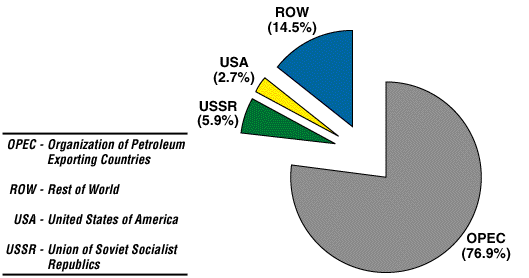


Distribution of world's 3,935.9 trillion cubic feet of proven gas reserves,
January 1, 1989.

Distribution of world's 990.6 billion barrels of proven oil reserves,
January 1, 1989.

What costs and benefits will result from the use of alternative transportation fuels such as ethanol, methanol, compressed natural gas, and electricity?

The increased costs of all alternative fuels, their lesser energy densities, and the uncertainties about the performance of vehicles are likely to make consumers resistant to using those fuels in the near future. In the long run, however, fuels from natural gas and propane appear to be able to compete with petroleum fuels. Costs of infrastructure for distribution and refueling are relatively modest.
Biofuels or increased electricity production by means of nuclear energy and photovoltaic energy is necessary for significant reductions in greenhouse gases to occur.
Research in progress addresses the costs of making a transition to alternative fuels, as well as related policy issues.

Greene, D. L. 1990. Policy directions: Technology and fuel efficiency. Forum for Applied Research and Public Policy 5(1):23-29.
Integrated Assessment Briefs. 1995. ORNL/M-4227. Oak Ridge National Laboratory, Oak Ridge, TN.